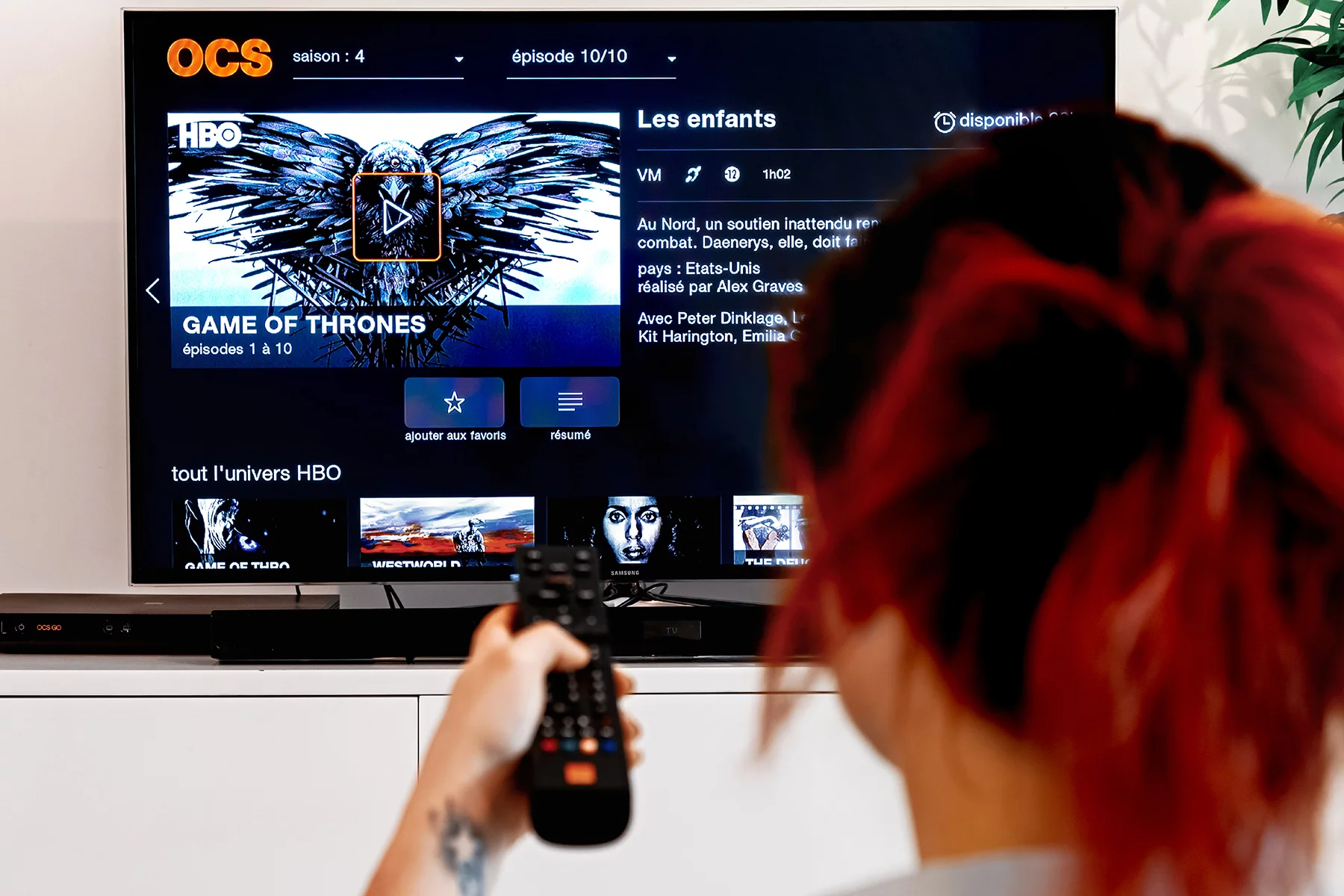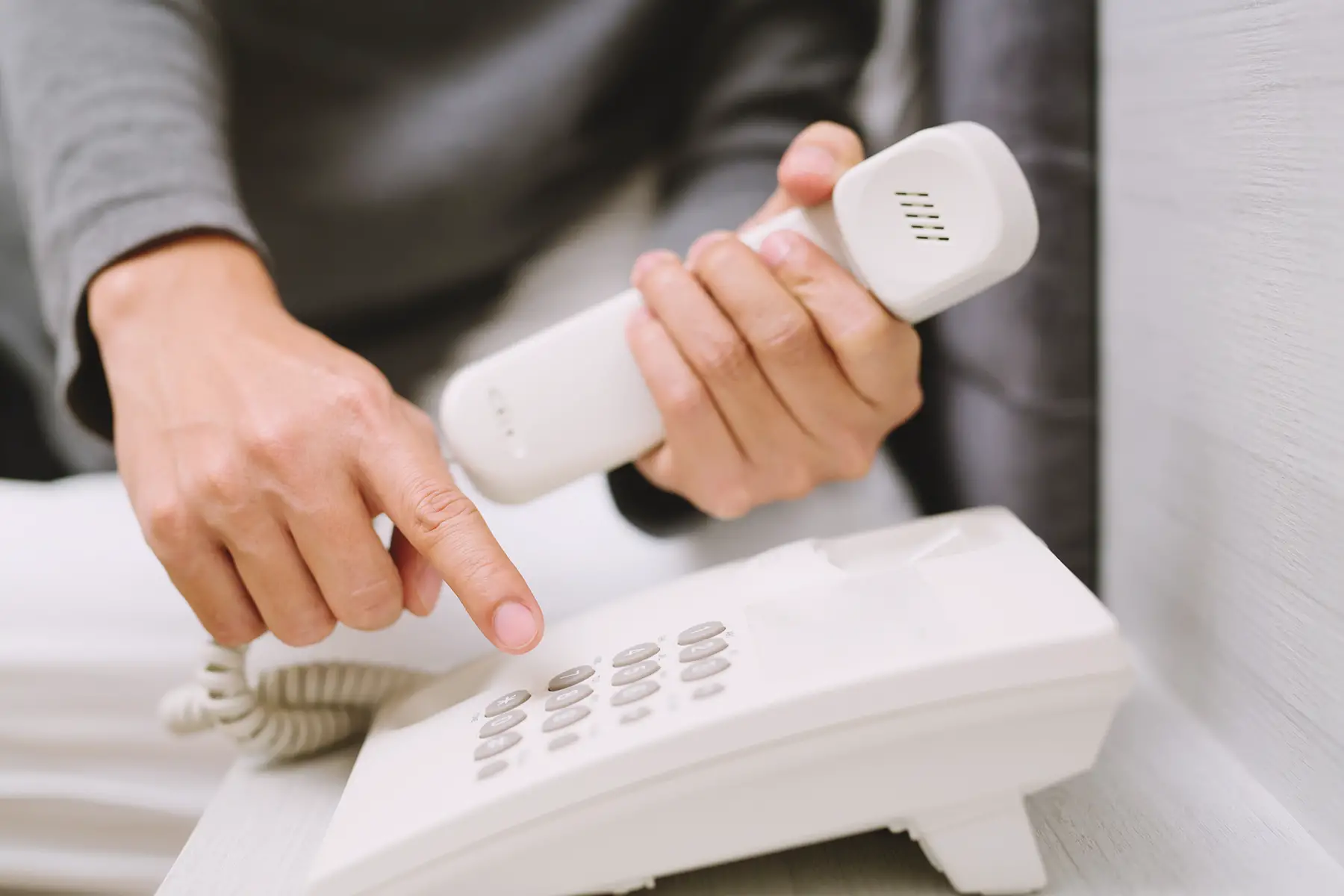For some expats, their dream home will be an airy apartment in central Paris. For others, it’ll be a gite on the French Riviera. Wherever la vie française takes you, one of the first things you’ll need to do is set up your home communications.
If you’re a new arrival, the prospect of setting up your TV, home phone, and internet connection in France can seem challenging. But it doesn’t have to be. That’s why we’ve put together our expert guide on getting your home connected, including information on the following:
SFR
Looking for the best connections for your new home in France? SFR offer expat-friendly home phone, broadband and TV packages for every budget and taste. Choose from options including fiber optic cable, free international calls, and TV channels from around the world. Get connected with SFR.
Communications in France
If you’ve just arrived in France, you might be pleasantly surprised to realize just how competitive the country’s telecoms sector is. There is a growing number of providers for you to choose from, with many offering a range of services. However, your ability to choose your provider will depend on where you live, as we discuss later in this article.
If you are able to shop around for TV, home phone, and internet connections, the biggest telecoms providers in France include the following:
These providers often offer discounted packages if you choose to take out more than one service. Some offer deals on mobile phone subscriptions, too. Shop around to see if you could save some additional money on your phone bill.

However, you don’t have to get your services from one of the main suppliers, and it often pays to shop around to ensure you get the right deal for you. You can do this easily using an online comparison service, such as Je Change and Que Choisir. Be aware that these websites are in French, though, so you may want to brush up on your language skills ahead of time.
Getting connected in a new home
Whether you’re renting in Rouen or buying in Biarritz, setting up your own TV, phone, and internet connection will probably be high on your to-do list when you move in.
If you’re renting, your new home might already be connected to these services. If so, your landlord will likely include the cost in your monthly payments. However, it is important to clarify this with them before you sign any paperwork so you know exactly what your rental payment includes, what ends up in your name, and what the contract cancellation or change involves (such as fees).
Generally speaking, communication services will be included as a standard should you rent a serviced apartment. You may then be able to choose another provider or continue using the existing connections. You’ll likely be able to find a cheaper deal elsewhere, however, changing providers may not be worth your while if you’re planning a short stay.
Getting a landline telephone in France
Even though mobile phones are widely used throughout France, you’ll still need a landline connection to access home broadband services. Historically, Orange, (previously known as France Télécom) has dominated the market (a dominion inherited from its days as the sole public telecom company), although these days an increasing number of other operators have moved into the sector. However, the influence of Orange remains high due to the unique “zone” nature of the French telecoms network.
When setting up any telecoms service in France, you first need to work out in which zone you live. There are three types of zone, and these zones determine the services available to you:
- Zone de dégroupage total – the local network has been unbundled for competitors and you are free to choose the provider of your choice for all services, although you will still need to pay line rental to Orange.
- Zone de dégroupage partiel – the local network has been partially unbundled and your fixed telephone line will be managed by Orange, but you can then choose other services from other providers.
- Zones non-dégroupées – found only in certain rural areas, the local network remains bundled and is wholly managed by Orange, although other providers can rent access.

This system can be infuriatingly complex for many expats and it’s well worth looking into before you sign up for any telecoms services. However, as most of France is either fully or partially unbundled, you shouldn’t worry too much. In some bundled and partially bundled zones, the quality of service from providers other than Orange can be unreliable. However, in most urban areas, you should have no problem using another provider for your landline service. Bear in mind that only Orange and SFR offer landline-only options, and it’s often cheaper to take out several services with one provider.
How do I set up my landline telephone in France?
Firstly, you need to find out which zone you live in. If you live in either a partially bundled or bundled zone, you’ll need to contact Orange to set up your connection. You’ll need proof of identity (passport or residence permit) and proof of address (another utility bill or rental contract), but you should be connected in a few days.
Even in unbundled zones, you’ll still need to set up your connection with Orange and pay a subscription charge (abonnement) for the line. Orange will then automatically bill you for any calls unless you subsequently sign-up with a different operator. However, even with another provider, you’ll still have to pay your Orange subscription fee to keep your number.
Unless there is no connection at your new home, it should be fairly easy to get connected. However, if you need to install a new phone line, an engineer will come to your house and set it up. This may take weeks. If you’re moving within the same region of France, you may be able to keep your old phone number for a fee.
Setting up an internet connection in France
Broadband internet in France is provided by both ADSL and optical fiber connections. However, compared to some of its European neighbors, broadband connectivity in certain parts of France can be disappointing. While large towns and cities have excellent accessibility via both ADSL and superfast optical fiber cables, in rural areas connectivity can be limited.
Choosing your broadband provider will depend on which zone you live in. Most residents in France live in either a partially-unbundled or unbundled zone, meaning you can choose your internet provider. However, you’ll still need to set up your landline telephone connection with Orange first before then choosing your broadband provider. This process can take up to two weeks.

In the more remote bundled areas, broadband connectivity can be significantly worse than in urban centers. Optical fiber connections are almost non-existent, and even ADSL connections can be limited. Poor connectivity is particularly common if you choose a provider other than Orange. If ADSL is unavailable or poor quality, consider satellite broadband instead.
When it comes to choosing a supplier, you’ll find most companies offer a range of packages. These are often called box packages and are priced according to download speed and any extras, such as TV channels and on-demand services like Disney+ and Netflix. Choose the right box for your usage. For example, if your family plays a lot of computer games, you’ll need a higher download speed. However, if you only use social media, a lower download speed will be fine.
The largest internet providers in France include:
- Bouygues Telecom
- Coriolis
- Free
- La Poste Mobile
- Orange
- RED by SFR – SFR’s low-cost internet and mobile service
- SFR
Discounted rates are available if you choose to package services together, such as a TV subscription. Therefore, it pays to shop around for the best deal. You can do this quickly and easily on comparison sites like Je Change and Que Choisir.
How do I set up my internet connection in France?
Once you’ve set up your landline connection, getting hooked up to the internet in France is fairly straightforward (but again, expect installation delays which generally come with anything administrative). Generally speaking, providers will either offer an installation service or send you the tools to connect yourself. However, remember any installation guide will likely be in French, so you may need a dictionary on hand for any tricky terminology.
Getting a VPN in France
When moving abroad, it’s more important than ever to ensure your privacy and security while surfing online. For many expats, this means getting a virtual private network (VPN). VPNs can help you browse with more anonymity and privacy wherever you are in the world. They can also help unblock online content, letting you access your favorite sites and platforms from home and abroad. VPNs available in France include:
Setting up TV in France
New arrivals to France might not find the quality of the local TV service as good as they’re used to, but French TV is decent and widely accessible across the country. France has a digital terrestrial system called TNT (Télévision Numérique Terrestre), which is similar to the UK’s Freeview service. TNT offers around 20 channels free of charge. However, you’ll need a modern TV to receive the channels. You’ll also need to pay an annual TV license (redevance audiovisuelle) along with your taxes.

Unlike other European countries, only around half of French households have additional TV subscriptions. However, many expats prefer the range of choice offered with these services. Indeed, if you want to watch international sport or the latest movies and series from around the world, you’ll need to take out an additional TV subscription.
Increasingly, these subscriptions are included in package box deals with home broadband connections. Therefore, the biggest TV providers in France include:
What you end up paying for these TV services will largely depend on the channels you want to watch. Some platforms will offer a basic package of channels, including news/current affairs and entertainment. However, for live sport, international channels, you will need to sign up for an additional package. For example, SFR offer dedicated packages for English TV, Indian TV, and many more.
Alternatively, depending on your location in France, you may prefer to sign up for a satellite TV service that will allow you to watch free TV channels from the UK. Satellite services like CANALSAT are also available for French TV, however, you will need to install a dish for any satellite TV services. For more information on TV licenses, free-to-air television, satellite connections and more, read our guide to TV and radio in France.
How do I set up my TV in France?
Decided which TV provider offers the right channels for you and your family? Now it’s time to get your home connected. Providing you have a phone line and broadband connection, setting up your TV service will likely be fairly straightforward. However, if you are starting from scratch, you will probably need to set up your phone line first before connecting your other services. This can take a few weeks. For any satellite services, you will need a professional to install the dish.
Your TV provider will likely provide you with a box (also called a decoder) that connects to your TV and internet port. Each provider offers a range of these boxes which depend on your chosen package, so follow the instructions carefully. Generally speaking, installation is fairly straightforward, although be aware that any instructions are likely to be in French, so you may need to brush up on some terminology beforehand.
Paying for your bills
When signing up for telecoms in France, you’ll likely need to provide your bank details as part of the process. Some providers also require an activation charge, so be aware of any additional fees when setting up your connections. Having a French bank account will make the process much easier, so check out your banking options ahead of time.
French telecoms companies will generally expect you to pay bills by automatic monthly collection from your bank account. Generally speaking, this is the easiest way to make payments. However, each individual provider will have their own system. Failing to make a payment could see your service canceled, so ensure you keep up to date with your bills.
Be aware that many providers will charge you early cancellation fees, so if you’re not staying for a full year, make sure to check that your contract includes cancellation clauses that will allow you to exit without paying fines – or a full 12 months’ subscription that you do not need.
Making a complaint about a telecoms company
Do you have an issue with one of your French telecom services? Whether you have a billing or customer service problem, your first port of call should be the complaints department of your provider. You should be able to find this information on their website.
However, if your issue hasn’t been resolved within a month or you remain unsatisfied, you can make a complaint to the National Consumer Service. Each provider has their own consumer service, so check online for information on the service for your telecoms supplier. Should you still fail to find a resolution, you can then contact La Médiation des Communications Électronique, the national impartial mediator for the telecoms sector.
Useful resources
- La Médiation des Communications Électronique – French telecoms mediation service
- ARCEP – Regulatory body for French telecoms






